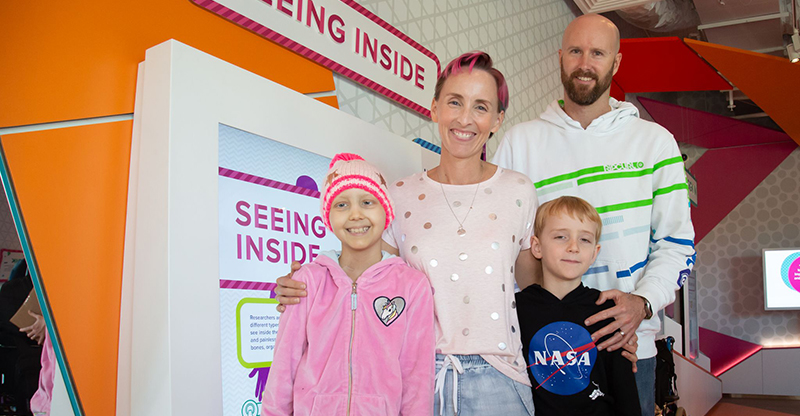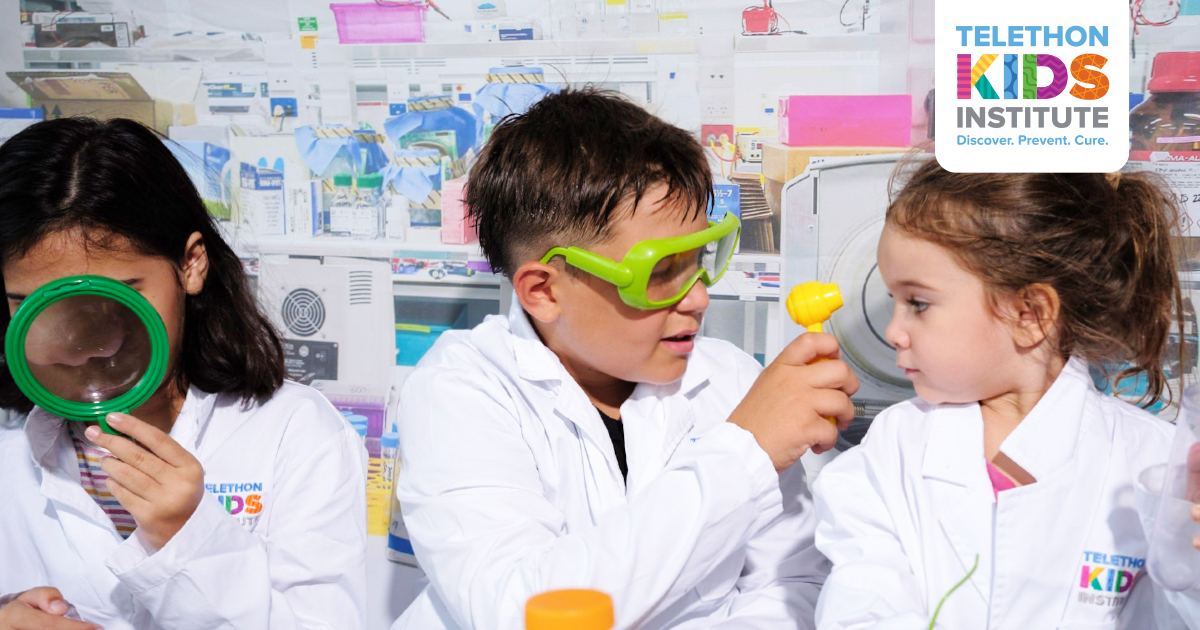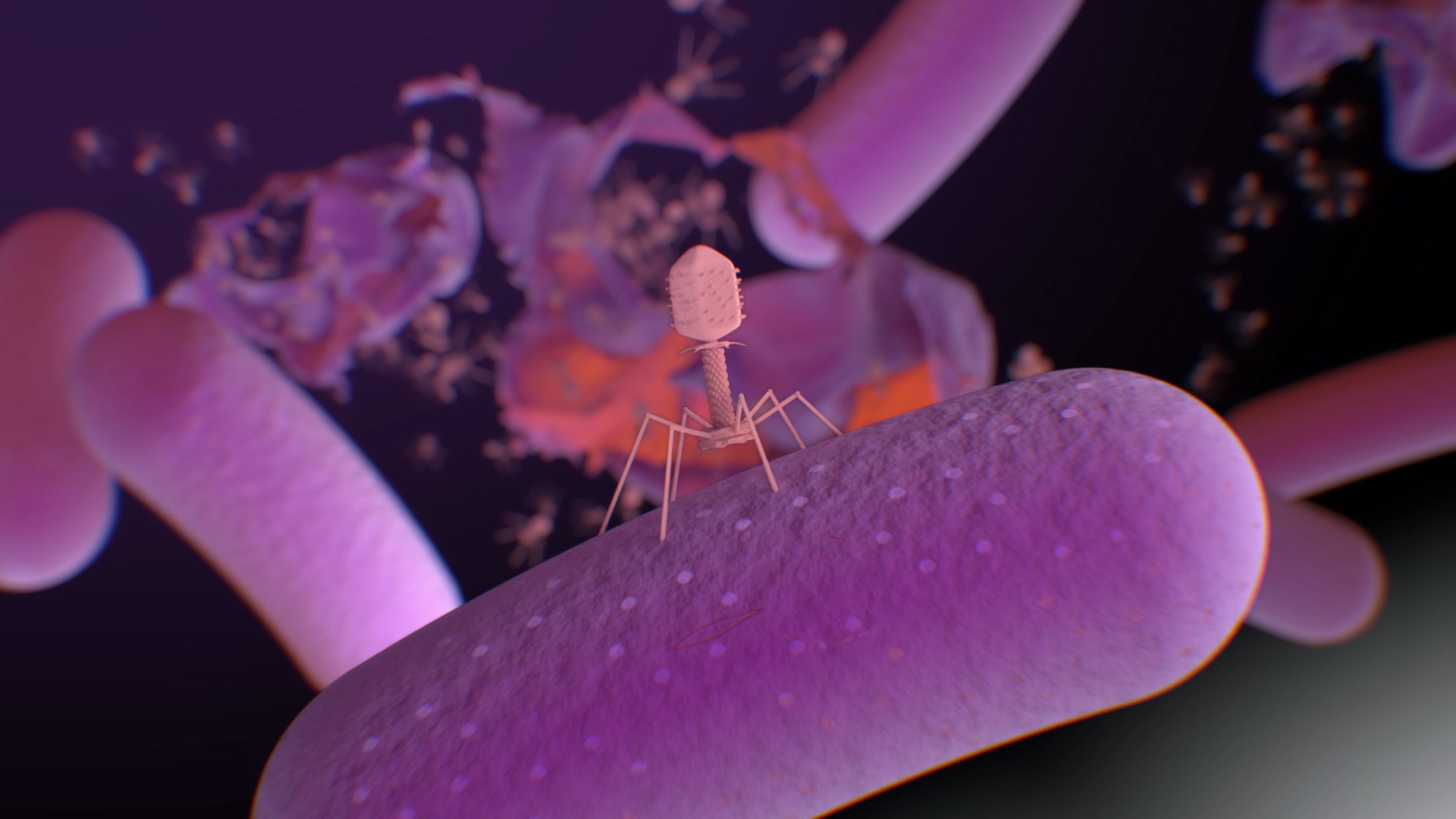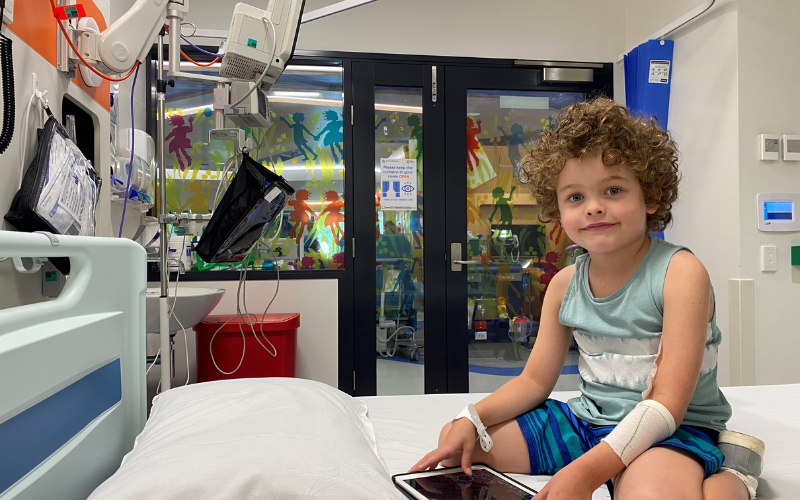Search
Research
The Proactive StudyAndrew Gail Videos Whitehouse Watch and listen to Andrew Alvares PhD PhD Deputy Director (Research); Angela Wright Bennett Professor of Autism
Research
THINK BIG - Neurodevelopmental DisordersAmy Andrew Helen Jenny Martyn Melissa Videos Finlay-Jones Whitehouse Watch and listen to Andrew Leonard Downs Symons Licari BPsych(Hons), MPsych(
Research
Community and Food Environments studyGina Nicole Trapp Hanna BHSc(Hons1A), RPHNutr, PhD BHlthSc (Hons) Honorary Research Associate Program Manager 08 6319 1033 Gina.Trapp@thekids.org.au
Research
Wellbeing and Type 1 DiabetesA community-led, trauma-informed psychosocial intervention to improve health outcomes of children and young people with Type-1 diabetes.

News & Events
Discovery Centre offers Tilly chance to be researcher for a dayGetting the chance to play researcher for the day was a welcome change for Tilly Bignell, who has been in and out of hospital since being diagnosed with brain cancer in late 2018.

News & Events
Broome kids get their hands dirty with real-life scienceThe Kids Research Institute Australia is bringing science to the Kimberley, with a series of free activities for children and families in Broome in the leadup to National Science Week.

News & Events
Visit our Discovery Centre in the holidaysBeat the heat these school holidays by visiting the The Kids Discovery Centre.v

Everything you need to know to book an excursion at the The Kids Discovery Centre.

Leading the fight against Antimicrobial Resistance (AMR) in Western Australia.

News & Events
New treatment option for West Australians with cystic fibrosis one step closer thanks to generosity of Conquer Cystic FibrosisAccess to phage therapy, a treatment option for antibiotic resistant superbugs, is now one step closer for people with CF in WA thanks to a $500,000 donation from Conquer Cystic Fibrosis to the Wal-yan Respiratory Research Centre.
